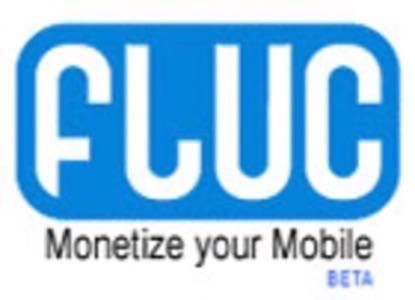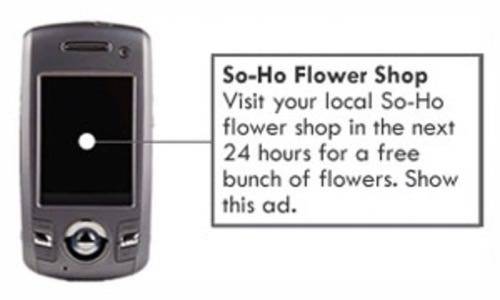Australian startup Fluc is an innovative new mobile advertising network that not only lets publishers monetize their content, but also lets mobile users opt-in to be paid to recieve targeted SMS-based advertisements.

Users provide Fluc with a profile of their tastes and interests when they sign up for the service, and Fluc uses that information as well as geopositioning data to deliver extremely well targeted ads. As the site’s FAQ puts it, “You set Fast Food as a preference for content you want to receive. You are walking down the local shop or mall to get lunch and you get an SMS on your phone – ‘Uncle Barneys Burger House is offering 20% off all burgers this week. Show this message to receive your discount.’ – Score! — a cheap burger. Well not only did you just get a cheaper burger, you also just received $0.30 credit for getting that message!”
The site doesn’t say what the average payout is, and mentions both $0.20 and $0.30 in examples, nor does the site say how many ads someone is likely to receive each day, though there is a maximum of 5 per 24 hour period. If Fluc could average 20 cents per ad delivered and fill the maximum each day, we’re talking $30 per month just to receive a few extra text messages — assuming you have a free text messaging plan, that’s a serious dent in your monthly wireless bill. That’s assuming a lot from a fledgling ad network that works with geopositioning data (i.e., some users are likely to receive less ads than others simply because of where they live), but there exists a potential for the Fluc scheme to seriously subsidize the cost of your mobile phone.
Fluc also offers a 4-level referral program, so if users recruit their friends to look at cellular ads, they get a slice of that action. But would advertisers pay to advertise on your phone knowing that you’re being paid to receive the text message? 5 extra SMS messages per day isn’t very taxing, and deleting the messages without looking just to pocket the cash is a pretty small time investment.

The answer probably lies in the ability for Fluc to accurately figure out where on the grid you are. If their geopositioning system is accurate (some can pinpoint your location within 50 meters), then I could see advertisers ponying up. I.e., if the GAP knows you’re near a mall where they have an anchor store, and they know from your Fluc account that you fit their consumer profile, then they might pay to send you an ad even if your motives for receiving it may be hazy.
That’s a lot of “ifs,” though. For the user, Fluc is only worthwhile if they can fill their inventory with high-paying, relevant advertising for their area. For advertisers, Fluc is only useful if their geoposition-based targeting works well enough to really get their ads in front of the right local consumers. If Fluc can form partnerships with local wireless service dealers or with carriers, then the potential for them to succeed would be much better, otherwise, I’m not sure they can gain the critical mass necessary.

















